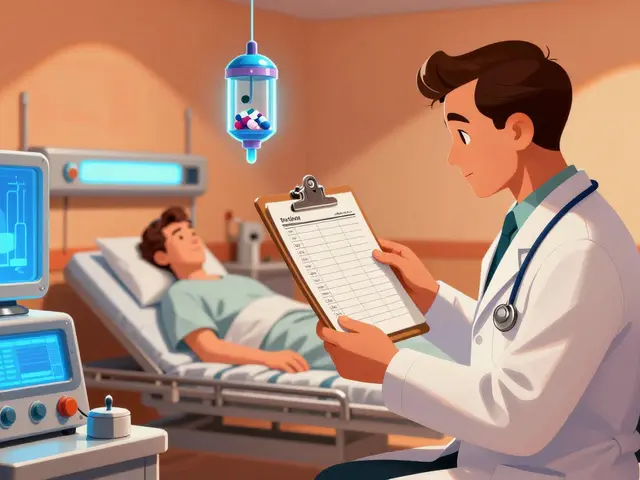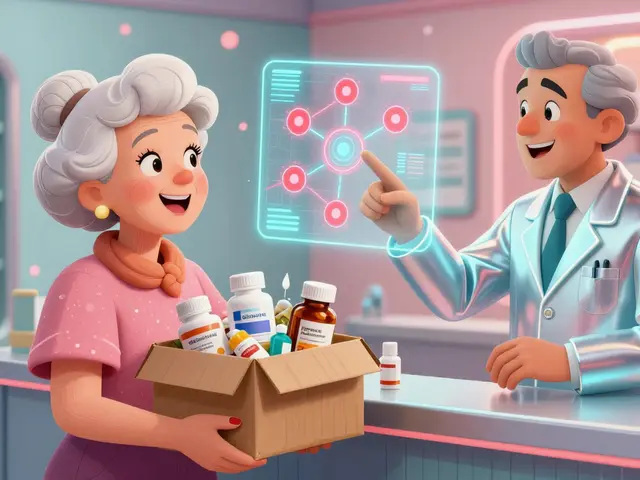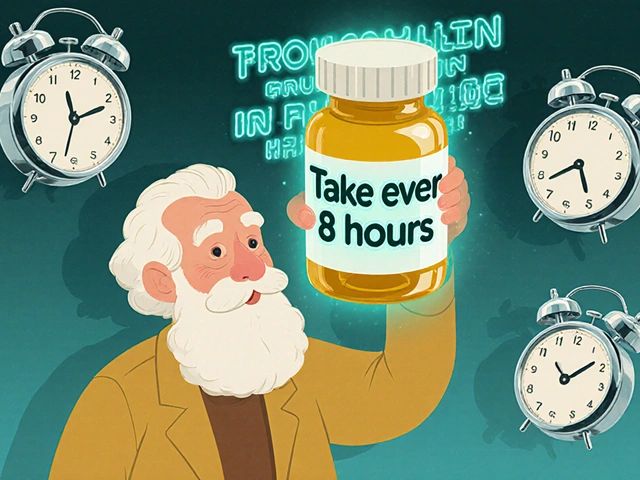Liver disease: signs, tests, meds, and what to do now
Worried about your liver? You're not alone. Liver disease shows up in many ways — from simple fatigue to sudden yellow skin — and often starts quietly. Knowing the common signs, which medicines make liver problems worse, and the right next steps can stop a small issue from becoming serious.
Quick signs and tests
Watch for yellowing of the skin or eyes (jaundice), dark urine, pale stools, belly swelling, persistent belly pain, unexplained tiredness, easy bruising, and itching. If you have any of these, ask for liver function tests (LFTs) — doctors usually check ALT, AST, alkaline phosphatase, and bilirubin. Imaging like ultrasound and tests for hepatitis B and C are common next steps. For longer-term damage, FibroScan or a liver biopsy may be recommended.
Practical steps and medication risks
First, list every medication and supplement you take. Many common drugs can stress the liver — acetaminophen in high doses is a top cause, and some prescription drugs like valproate (Depakote) need careful monitoring. Herbal supplements such as kava, comfrey, and high-dose green tea extract have been linked to liver injury. Always talk with your prescriber before stopping or starting meds.
Live healthier for your liver: cut back or stop alcohol, lose weight if you're overweight, control blood sugar, and avoid risky tattooing or unprotected sex (to reduce hepatitis risk). Vaccines for hepatitis A and B are simple and effective if you are not immune. Small lifestyle changes often halt fatty liver (NAFLD) and reduce inflammation.
When should you get urgent help? Go to emergency care if you notice sudden severe abdominal pain, confusion or sleepiness, bleeding, or fast worsening jaundice. These can be signs of liver failure or severe infection.
For ongoing care, ask your doctor for a clear plan: what tests to repeat, what medicines to avoid, and when to see a liver specialist. If you take a medicine known to affect the liver, regular LFT monitoring will be part of that plan.
Curious about how specific drugs affect the liver or need safe alternatives? We have plain-language guides on common medications, drug safety, and alternatives — like articles on Depakote, diuretics for edema, and safer online pharmacy choices. Use those pieces to get practical, actionable info before a clinic visit.
Liver problems are often manageable when caught early. Keep track of symptoms, protect your liver from known toxins, and ask for tests if anything feels off. Quick action matters more than perfect knowledge.
Some practical numbers and treatments: unless your doctor says otherwise, avoid taking more than 3,000 mg of acetaminophen a day, and never mix multiple products that contain it. If tests show viral hepatitis, modern antiviral drugs can often cure hepatitis C or control hepatitis B — ask about direct‑acting antivirals or HBV treatment. For fatty liver, losing 5–10% body weight often improves results. In advanced cases your doctor may discuss liver transplant. Keep copies of your test results and bring them to appointments.
Ask questions until you understand the plan.
 1 October 2025
1 October 2025
How Severe Stomach Pain Can Signal Liver Disease
Learn how severe stomach pain can signal liver disease, explore common liver conditions, diagnostic steps, and when to seek medical help.
The Link Between Hepatic Encephalopathy and Sleep Disturbances
As a blogger, I recently came across some fascinating information about the link between hepatic encephalopathy and sleep disturbances. Hepatic encephalopathy is a neurological disorder that occurs in patients with liver dysfunction, and it seems that it can significantly impact one's sleep patterns. Studies have shown that patients with this condition often experience insomnia, sleep apnea, and daytime sleepiness. This connection is important to understand, as proper sleep is crucial for overall health and well-being. So, if you or someone you know is struggling with liver disease, it's worth discussing potential sleep issues with a healthcare professional to ensure the best possible care.
Latest Posts
-

Medication List Templates: Free Printable and Digital Options for 2026
-

Annual Medication Review with a Pharmacist: How to Reduce Side Effects and Stay Safe
-

Mysimba vs Weight‑Loss Alternatives: Full 2025 Comparison
-

How to Use Label Information to Set Accurate Medication Reminders
-

How Severe Stomach Pain Can Signal Liver Disease

13